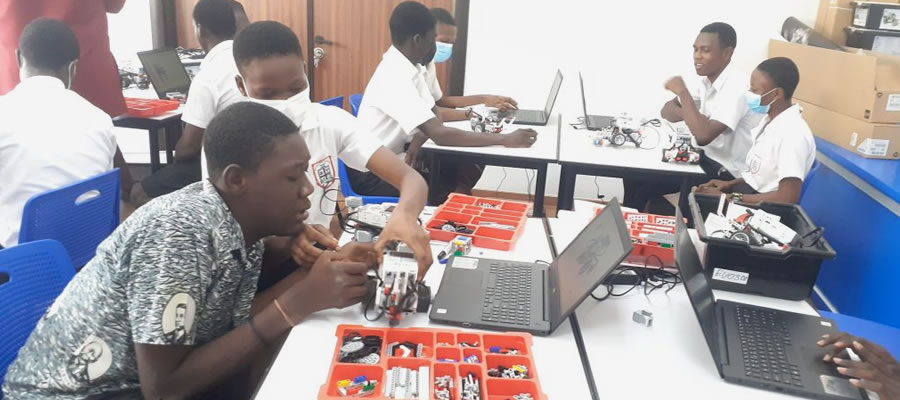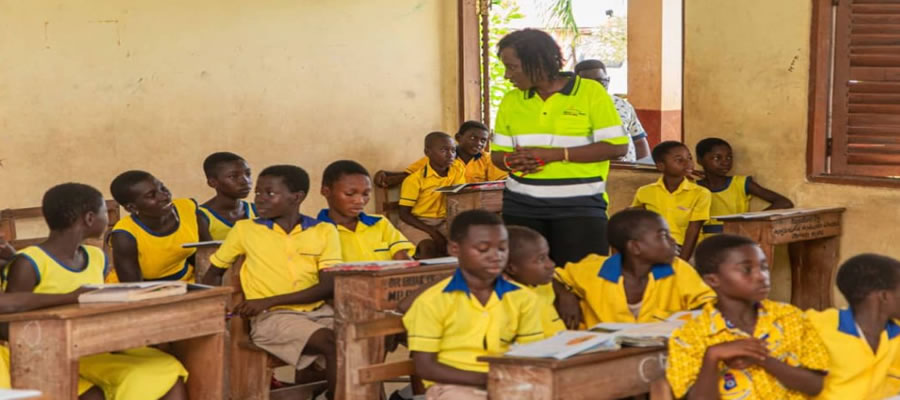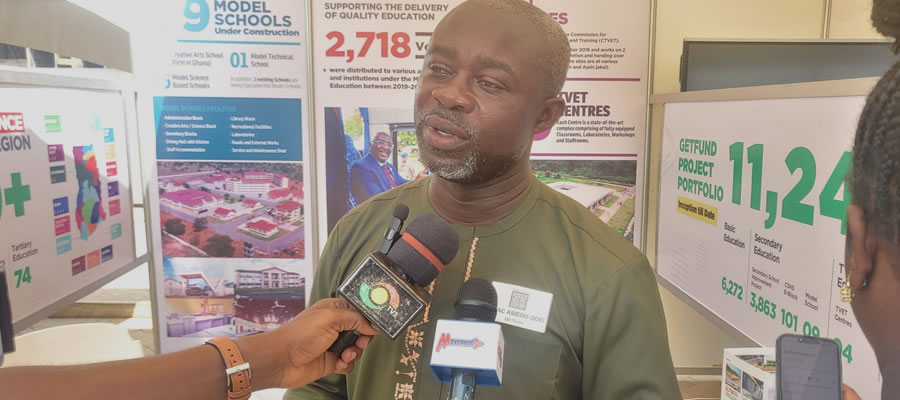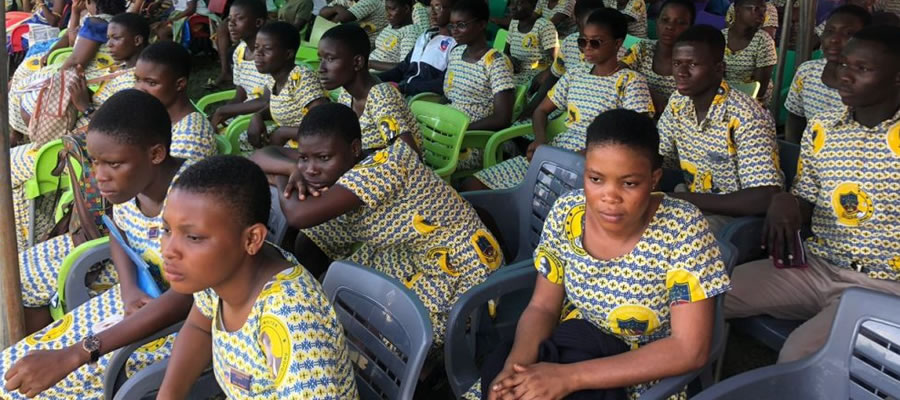

EDUCATION
Ghana steps up STEM education with 16 regional centres

Date Created : 9/18/2024 : Story Author : Francis Ntow/Ghanadistricts.com
The resource centres, which are about 70 percent complete, are expected to boost science, mathematics, and computing teaching and learning and empower Ghanaians to design solutions for the country's development.
Mrs Olivia Serwaa Opare, the Director of the Science Education Unit of the Ghana Education Service (GES), disclosed this in an interview at the opening of a five-day retreat for national STEM coordinators.
The retreat is being held at Adukrom, Eastern Region. Its purpose is to facilitate knowledge sharing among regional, municipal, and district coordinators and encourage the adoption of best teaching practices.
“Very soon you will see one STEM hub each in all our 16 regions. They are under construction?and are about 70 per cent complete,” Mrs Serwaa Opare said.
She also indicated that the government had increased the supply of equipment and other materials to improve practical science and mathematics, in addition to periodic training of teachers and coordinators.
Mrs. Serwaa Opare said Ghana's STEM education had improved over the years, with subjects now taught in a practical manner, including the use of the environment to help students learn science, mathematics, and computing.
Ghanaian students have received numerous worldwide STEM awards, in addition to competing in the worldwide Scientific Physics Olympiad held in Russia.
Mr. Richard Arthur Payne, Central Regional STEM Coordinator, said the training would help them improve their knowledge of mathematics and science, as well as the psychology aspect of teaching.
He emphasized that STEM education in Ghana had improved because of the establishment of a resource centre for continuous learning and periodic workshops for coordinators and teachers.
“Students are now doing well, having hands-on activities, touching some equipment at first hand, and that’s making them better appreciate, understand, and love mathematics and science,” he said.?
Mr. Payne requested financial assistance to organize frequent camps for both junior and senior high school students to help them expand their practical knowledge.
Mr. James Kwesi Addison, an Emotional Intelligence Master Coach, advocated for the integration of emotional management in all STEM subjects in schools, particularly at basic and secondary schools.
“We should look at our syllabus and make sure that we can teach every subject with emotional intelligence… to build empathy, collaboration, teamwork, and listening in the children, which are the skills that predict future success.
“Every good academic performance has its basis in emotional stability. That simply means that any child that is doing very well in school has very good emotions,” he said.
Mr. Addison explained that since the coordinators and teachers were those who educate and groom students for the future, it was important for them to be taken through emotional intelligence learning.
As part of the five-day training, participants would share good practices and experiences, visit schools, including special schools for persons living with disabilities.










 facebook
facebook
 twitter
twitter
 Youtube
Youtube
 +233 593 831 280
+233 593 831 280 0800 430 430
0800 430 430 GPS: GE-231-4383
GPS: GE-231-4383 info@ghanadistricts.com
info@ghanadistricts.com Box GP1044, Accra, Ghana
Box GP1044, Accra, Ghana